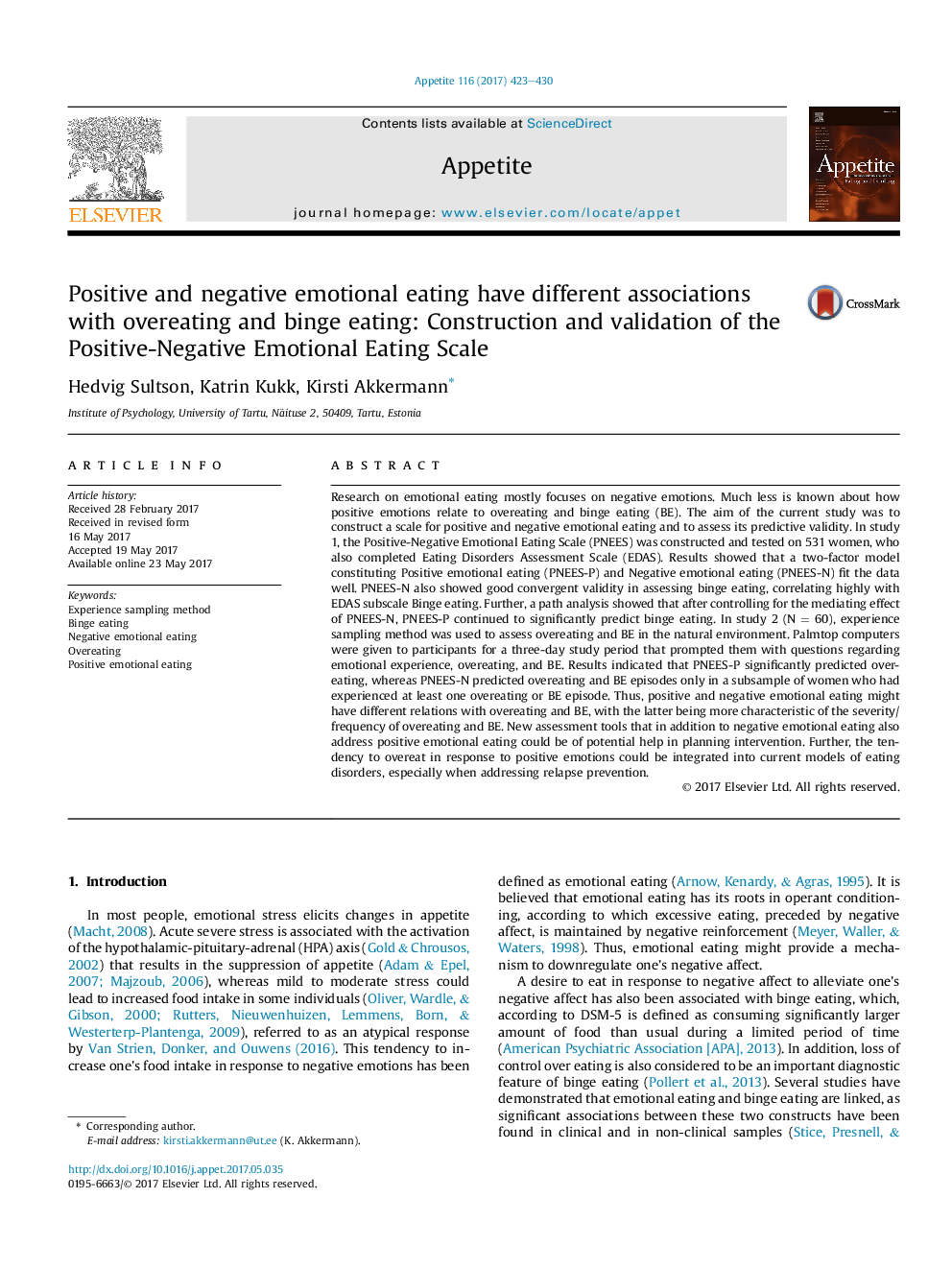| کد مقاله | کد نشریه | سال انتشار | مقاله انگلیسی | نسخه تمام متن |
|---|---|---|---|---|
| 5044024 | 1475364 | 2017 | 8 صفحه PDF | دانلود رایگان |
Research on emotional eating mostly focuses on negative emotions. Much less is known about how positive emotions relate to overeating and binge eating (BE). The aim of the current study was to construct a scale for positive and negative emotional eating and to assess its predictive validity. In study 1, the Positive-Negative Emotional Eating Scale (PNEES) was constructed and tested on 531 women, who also completed Eating Disorders Assessment Scale (EDAS). Results showed that a two-factor model constituting Positive emotional eating (PNEES-P) and Negative emotional eating (PNEES-N) fit the data well. PNEES-N also showed good convergent validity in assessing binge eating, correlating highly with EDAS subscale Binge eating. Further, a path analysis showed that after controlling for the mediating effect of PNEES-N, PNEES-P continued to significantly predict binge eating. In study 2 (NÂ =Â 60), experience sampling method was used to assess overeating and BE in the natural environment. Palmtop computers were given to participants for a three-day study period that prompted them with questions regarding emotional experience, overeating, and BE. Results indicated that PNEES-P significantly predicted overeating, whereas PNEES-N predicted overeating and BE episodes only in a subsample of women who had experienced at least one overeating or BE episode. Thus, positive and negative emotional eating might have different relations with overeating and BE, with the latter being more characteristic of the severity/frequency of overeating and BE. New assessment tools that in addition to negative emotional eating also address positive emotional eating could be of potential help in planning intervention. Further, the tendency to overeat in response to positive emotions could be integrated into current models of eating disorders, especially when addressing relapse prevention.
Journal: Appetite - Volume 116, 1 September 2017, Pages 423-430
